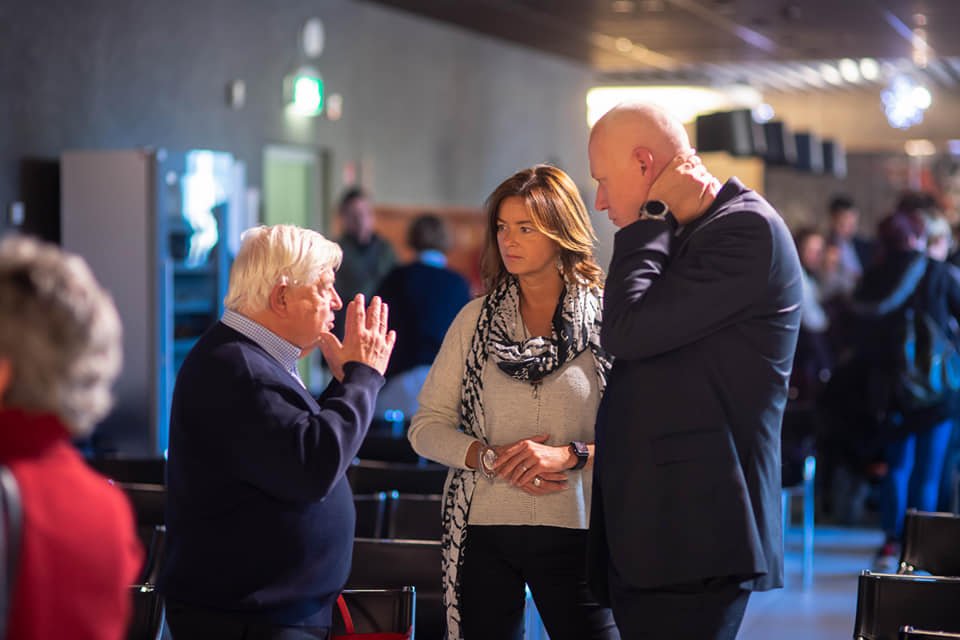Požareport revealed Robert Golob’s tactics, how Milan Brglez is supposed to be presented as a more independent presidential candidate than Anže Logar, and what Golob’s conditions are supposed to be for Brglez. According to Požareport, Nataša Pirc Musar was criticised as too competitive at the Gibanje Svoboda council on Thursday, and Ivo Vajgl received more support. Moreover, Požareport reported that Brglez decided to run for president based on a conversation with Milan Kučan, who has already indicated his support to three candidates.
MEP Milan Brglez is ideologically closest to the Levica party – when he distanced himself from Miro Cerar, Luka Mesec did not want to take him into the party, so he chose SD. A few days ago, former Prime Minister Cerar assessed for Siol that Brglez does not have the right character to be the president of the republic. “According to his political knowledge, he is of course fully capable of serving as the President of the Republic, but I personally do not want someone with the kind of character that Mr. Brglez has as the President of the Republic,” he said, and emphasised Brglez’s personal ambitions and excessive or extreme ideological views. However, despite everything, Brglez is now becoming an “independent” presidential candidate on the list of Robert Golob’s coalition.
According to information from Požareport, Brglez must fulfil two conditions given to him by Golob and Gibanje Svoboda: that he resigns as president of the SD conference before the start of the election campaign and withdraw his candidacy for SD vice president in writing. According to Požar, the function of the president of the SD conference is equivalent to the function of the president of the SDS council, which is held by Anže Logar. When Brglez resigns as president of the SDS conference, he will therefore be presented as a more “independent” candidate than Logar, who has not (yet) resigned as president of the SDS council. For the time being, the question remains whether the leadership of the Levica party will decide to support Brglez instead of their own possible candidate, Miha Kordiš.
Milan Kučan also announced a few days ago that, in addition to Nataša Pirc Musar, he would also support Milan Brglez and Ivo Vajgl without any problems. According to information from Požareport, Brglez decided to run for president precisely on the basis of a conversation with Kučan and his long-time adviser Niko Toš. Although many are now surprised that Kučan supported as many as three candidates, political analyst Aljuš Pertinač explained that it is nothing new for Kučan to support several candidates at the same time in the elections, and it has been his habit for quite some time. He also supports several parties in the parliamentary elections. Whoever of these candidates will make it to the second round, it will be another big victory for Kučan, which some may even believe. In any case, supporting several candidates benefits him, or at least does not harm him. “He is simply expanding his options in order to somehow maintain this illusion or the aspect of his hegemony on the “anti-Janša” side, where he is the one who decides who can run for office and who cannot,” said Pertinač, adding that Kučan may now also realise what many have been claiming since the beginning, namely that Pirc Musar is far from the ideal candidate for president. “Moreover, she is still further from the fact that she could represent an electorate that she is addressing in the elections,” said the host of the Faktor show, who admitted that Pirc Musar is the absolute least acceptable choice for him personally.
Anyway, everything points to the fact that Logar’s voters will have to go to the current presidential elections in as large a number as possible and not stay at home counting on the fact that “he will win one way or another” – even if it may seem that way in the first round. Also, political scientist prof. Dr Miro Haček estimated that Brglez’s entry into the presidential race probably also means his victory in the second round. Let’s remember the year 2007, when Lojze Peterle had the best performance in the first round, but then Danilo Türk beat him heavily in the second round. The “Anti-Janša” electorate needs to stand together at key moments – and it is high time that the opposing camp of voters followed that example.
Sara Kovač


